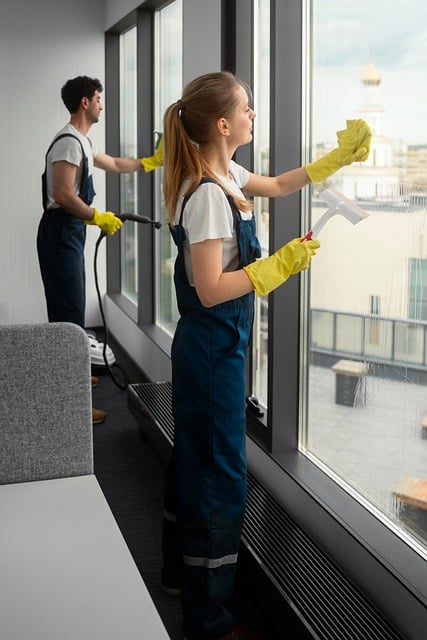Information About Cleaning Roles
Cleaning roles represent a vital segment of the workforce across various industries and settings. These positions involve maintaining hygiene, order, and safety in environments ranging from residential homes to commercial facilities, healthcare institutions, and public spaces. Understanding the nature of these roles, the skills required, and the working conditions can help individuals assess whether this career path aligns with their goals and capabilities.

Cleaning roles encompass a wide range of responsibilities that extend beyond basic tidying. Professionals in this field ensure that spaces remain sanitary, presentable, and compliant with health and safety standards. The scope of work can differ significantly depending on the setting, whether it involves office buildings, hospitals, schools, hotels, or private residences. Each environment presents unique challenges and expectations, requiring workers to adapt their methods and priorities accordingly.
Tasks Vary According to the Work Environment
The specific duties assigned to cleaning professionals depend heavily on the type of facility they serve. In healthcare settings, stringent disinfection protocols are mandatory to prevent the spread of infections. Workers must be trained in the proper use of medical-grade cleaning agents and follow strict procedures for handling biohazardous materials. In contrast, office cleaning typically focuses on maintaining common areas, restrooms, and workspaces through regular dusting, vacuuming, and waste removal.
Hospitality environments such as hotels demand attention to detail and speed, as rooms must be turned over quickly between guests while maintaining high standards of cleanliness. Industrial settings may require specialized knowledge of heavy-duty equipment and chemicals to address grease, grime, and other challenging residues. Residential cleaning often involves more personalized service, with clients requesting specific tasks or preferences that workers must accommodate.
Accuracy and Consistency Are Highly Valued Traits
Employers in the cleaning industry place significant emphasis on reliability and thoroughness. Accuracy ensures that no area is overlooked and that cleaning standards are met consistently across all tasks. This trait is particularly important in environments where cleanliness directly impacts health and safety, such as medical facilities or food service establishments.
Consistency builds trust with clients and employers, leading to long-term employment opportunities and positive professional reputations. Workers who demonstrate these qualities are often considered for supervisory roles or specialized positions that offer higher responsibility and compensation. Attention to detail also reduces the likelihood of complaints or the need for rework, which can affect productivity and client satisfaction.
Essential Skills and Qualifications
While many cleaning positions do not require formal education, certain skills and attributes enhance job performance and career prospects. Physical stamina is crucial, as the work often involves standing for extended periods, lifting supplies, and performing repetitive motions. Time management skills help workers complete tasks efficiently within designated schedules, especially when servicing multiple locations.
Knowledge of cleaning products and equipment is beneficial, including understanding which agents are appropriate for different surfaces and materials. Some roles may require certification in areas such as bloodborne pathogen handling, chemical safety, or operation of specialized machinery like floor buffers or pressure washers. Communication skills are also valuable, particularly for those working in occupied spaces where interaction with clients or building occupants is necessary.
Working Conditions and Schedules
Cleaning roles often involve non-traditional hours, with many positions scheduled during evenings, nights, or weekends to minimize disruption in commercial settings. This can be advantageous for individuals seeking flexibility or those balancing other commitments such as education or caregiving. However, it may also present challenges for maintaining work-life balance.
The physical demands of the work should not be underestimated. Tasks frequently require bending, kneeling, reaching, and carrying supplies or equipment. Exposure to cleaning chemicals necessitates proper protective equipment and adherence to safety guidelines to prevent skin irritation or respiratory issues. Some environments may also present exposure to allergens, dust, or other irritants.
Career Advancement Opportunities
The cleaning industry offers various pathways for professional growth. Entry-level workers can advance to supervisory or team leader positions, overseeing other staff members and ensuring quality standards are maintained. Some individuals choose to specialize in areas such as carpet cleaning, window washing, or restoration services, which may command higher rates.
Entrepreneurial opportunities exist for those interested in starting their own cleaning businesses. This path requires not only cleaning expertise but also skills in marketing, customer service, and business management. Building a client base and establishing a reputation for quality service can lead to sustainable income and independence.
The Article Provides a Clear Understanding of the Key Aspects
This overview has examined the fundamental elements that define cleaning roles in today’s workforce. From the diverse range of tasks encountered across different environments to the personal qualities that contribute to success, these positions require a combination of physical capability, attention to detail, and adaptability. While the work can be physically demanding and may involve irregular hours, it also offers accessibility to employment without extensive formal education requirements and potential for advancement.
Understanding these aspects allows individuals to make informed decisions about pursuing opportunities in this field. Whether seeking temporary employment, a stable career path, or a foundation for entrepreneurial ventures, cleaning roles provide practical options across numerous industries and geographic locations. The consistent demand for these services ensures ongoing availability of positions, making this a resilient sector within the broader employment landscape.




